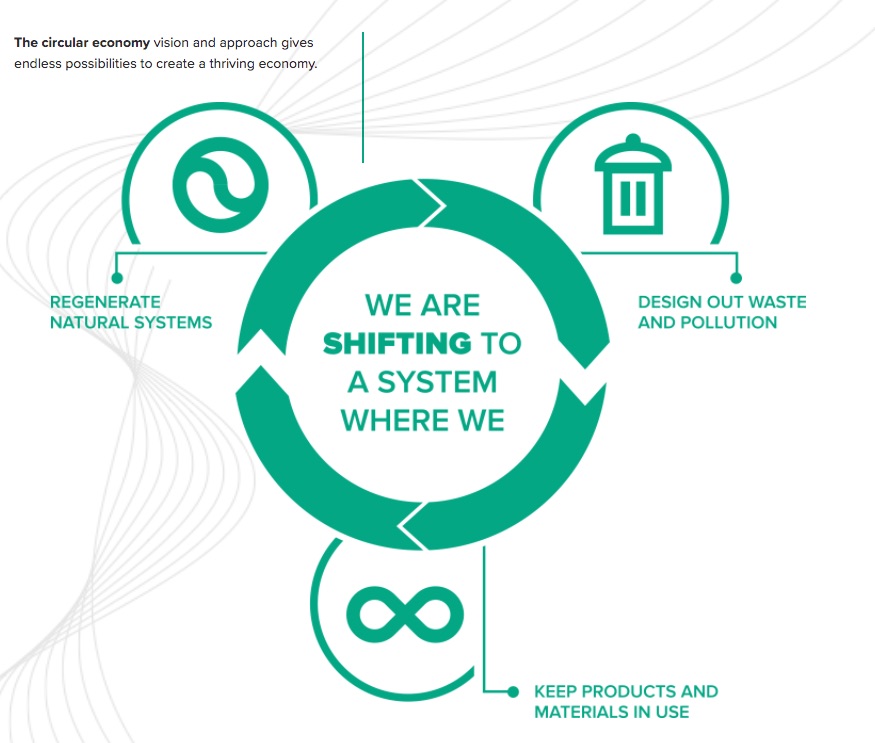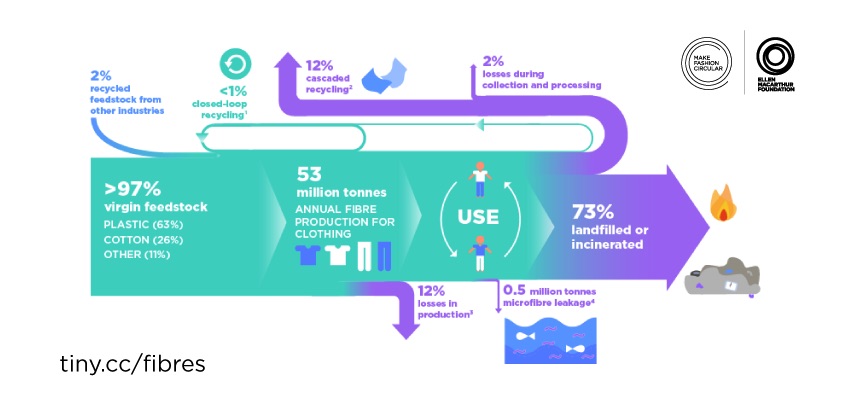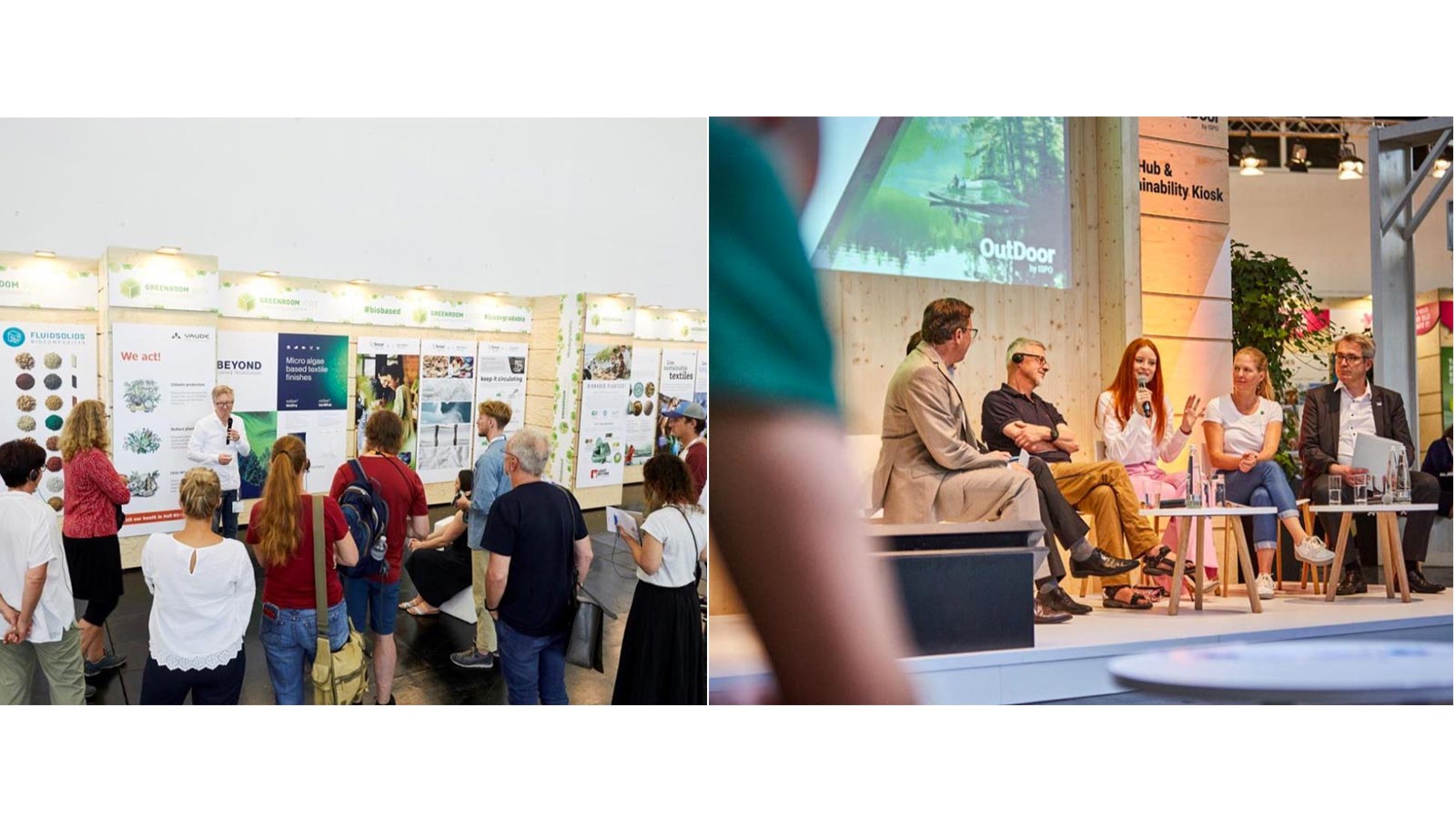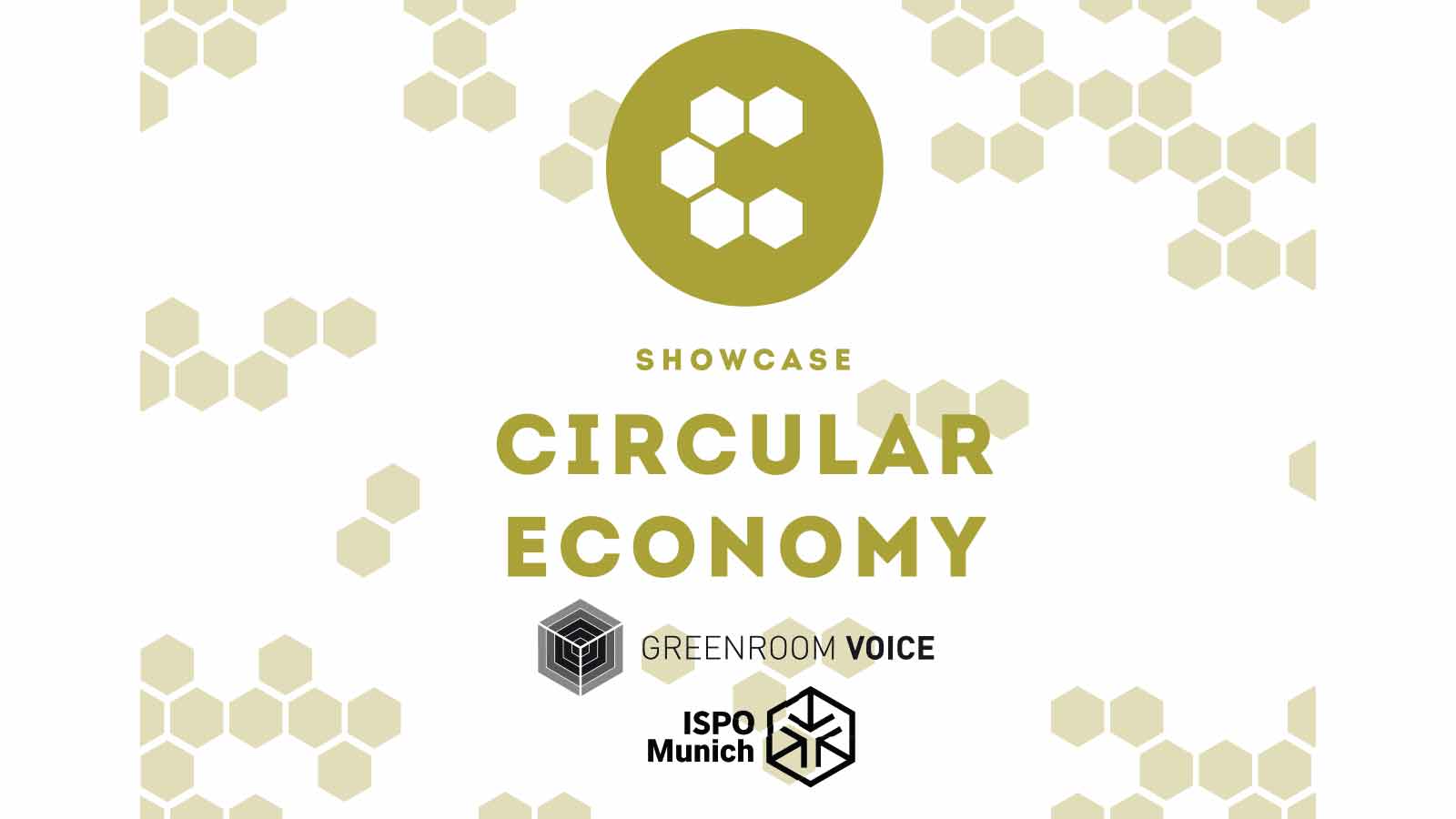Humanity is facing numerous challenges, but the principles of Circular Economy hold an enormous potential for a future worth living. Science and research tells us, that we have a limited timeframe to act in order to stabilize our climate, counteract the rapid loss of biodiversity and start to develop consciousness about our planetary boundaries. So we need to come together and re-think on how we do business, with what kind of materials, how we re-collect resources and drive the flow of trade into a circular model.
As partners and organizers of the Sustainability Hub at ISPO 2021, we will focus again on the principles of Circular Economy and bring together solutions, circular products, services, ideas, organizations, change makers and new technologies active in the Outdoor sector.
ISPO Munich has declared sustainability as one of the most important topics at the 2021 Edition. Space is available for engaged brands. Because of the still unstable COVID 19 situation, we will go ahead and plan the showcase as a hybrid format: physical and digital. But the sooner brands commit with their promise to participate the more space will be made available.
So we ask you kindly to tell us as soon as possible, ideally before the 16th of October 2020, if your brand or organisation considers a physical participation at the GRV Showcase. In case ISPO 2021 is cancelled because of the ongoing pandemic, brands logically won’t be charged for their physical exposure.
Its no secret that our way of handling material flows and economics in a linear fashion has no further to go. Finite systems within planetary boundaries need circular models. “A circular economy one that is restorative and regenerative by design.”, declares the Ellen Mac Arthur Foundation.
In nature there is no waste, all byproducts and all end products nurture further generations. Humanity has managed to create waste without thinking about using these materials any further. Let nature be our teacher.
“Every second, the equivalent of one garbage truck of textiles is landfilled or burned. An estimated USD 500 billion value is lost every year due to clothing being barely worn and rarely recycled. If nothing changes, by 2050 the fashion industry will use up a quarter of the world’s carbon budget. Washing clothes releases half a million tones of plastic micro-fibres into the ocean every year, equivalent to more than 50 billion plastic bottles.” (4)
These facts and figures need to change drastically within the next decade, if we want to enjoy a healthy environment, stabilise our climate, and create functional systems and economic flow where no one is left behind, especially not our children and grandchildren.

1. < 1% estimated percentage of all textiles worldwide that are being recycled into new textiles. 12% goes into cascade recycling. (1)
2. Second hand market set to hit $64B in the next 5 years. Resale is expected to overtake the traditional and donation segment by 2024. (2)
3. 4th rank of sector in regards to the EU’s consumption of water and primary materials (after food, housing and transport) (3)
4. 53 million tones Annual fiber production for clothing – 73% end up in landfill or is incinerated. (4)

How can the textiles & apparel industry move towards a more circular economy? (5)
“In such a system, clothes are designed to last longer and be worn more. New business models allow clothes to be rented, resold, or recycled more easily. And no toxic substances or pollutants are released when clothes are produced and used.”(4)
Design for Circularity
Design clothing so it can be reused, repaired and ultimately recycled at the end of life. “A circular economy is based on the principles of designing out waste and pollution, keeping products and materials in use, and regenerating natural systems. It’s a new way to design, make, and use things within planetary boundaries.”(4)
New Business Models
Extending the garments life is essential to slow down raw material use. So we need to increase clothing utilization. Business models that encourage repair, resale and rental are a key factor to move towards circularity.
Circular Materials
If we want to be able to use any resource for as long as possible we need to make sure it keeps its value. This means that the material is not blended beyond the possibility to separate the different ingredients again and is therefore recyclable. It also needs to be non-toxic. We need to phase out substances of concern and microfiber release. Over 65% of clothing globally is manufactured from petrochemical polymers (4). Recapturing those polymers through recycling can reduce the demand for virgin petrochemicals.
The GRV showcase at ISPO 2021 is here for you. Our aim is to present your project, product, service, organization which is active in the Outdoor sector to address these issues and align with the opportunities that arise. Possible synergies could emerge, like we have seen in the past, suppliers connecting with brands, service providers connecting with industry needs and organizations making sense of the bigger picture. We invite you to be part of the solution that a circular economy has to offer and re-create the world with the means of co-creation.

Please get in touch with us as soon as you can, best before Friday the 16th of October 2020 for us to plan the space according to what our industry needs.
1 Ellen My Arthur Foundation (2017) A new textiles economy.
2 https://www.thredup.com/resale/#resale-growth
3 https://www.eionet.europa.eu/etcs/etc-wmge/products/etc-reports/textiles-and-the-environment-in-a-circular-economy
4 https://www.ellenmacarthurfoundation.org/our-work/activities/make-fashion-circular/report
5 We invite you to listen to the regular “Getting in the Loop” podcasts by Katherine Whalen if you are interested in circular economy. https://intheloopgame.com/podcasts/

